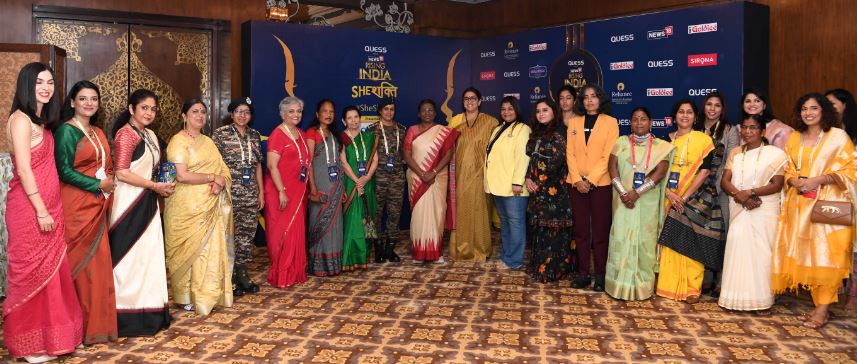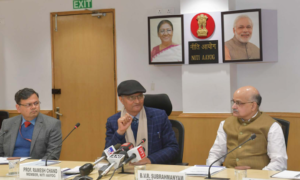Historic Day: Women’s Reservation Bill approved by President
The Women’s Reservation Bill has been pending for over two decades, but it finally got through Parliament thanks to the sustained efforts of women’s rights activists and political parties.

President Droupadi Murmu on Thursday gave her assent to the Women's Reservation Bill. (File Image)
In a historic moment for India, President Droupadi Murmu on Thursday gave her assent to the Women’s Reservation Bill, which seeks to provide 33 per cent reservation to women in the Lok Sabha and state legislative assemblies.
The bill was passed by the Lok Sabha on September 20 and the Rajya Sabha on September 21. With the President’s assent, it has now become a law.
The Women’s Reservation Bill has been pending for over two decades, but it finally got through Parliament thanks to the sustained efforts of women’s rights activists and political parties.
The bill will ensure that women have a greater say in the decision-making process at all levels of government. It is expected to bring about a significant change in the way India is governed, making it more inclusive and representative.
Background
The Women’s Reservation Bill was first introduced in Parliament in 1996. It has been passed by both houses of Parliament on three occasions, but it has never been ratified by the required number of state legislatures.
The bill has been opposed by some political parties and social groups, who argue that it would undermine the principle of meritocracy. However, supporters of the bill argue that it is necessary to ensure that women are adequately represented in government.
Implications of the Women’s Reservation Bill
The Women’s Reservation Bill is expected to have a number of positive implications for India. It is likely to:
- Increase the number of women in Parliament and state legislatures.
- Give women a greater say in the decision-making process at all levels of government.
- Make Indian democracy more inclusive and representative.
- Empower women and girls.
- Promote gender equality.
The passage of the bill is a major victory for women’s rights activists and a positive step for India’s democracy. It is now up to the government and society to ensure that the bill is implemented effectively and that women are able to take full advantage of the opportunities that it offers.
Reactions to the Women’s Reservation Bill
The passage of the Women’s Reservation Bill has been welcomed by women’s rights activists, political parties, and civil society organizations.
Prime Minister Narendra Modi said that the bill was a “historic moment” for India and that it would “empower women and make our democracy more inclusive.”
Women’s Reservation is a major milestone for India’s democracy. It is a victory for women’s rights activists and a positive step towards gender equality.
The law will ensure that women have a greater say in the decision-making process at all levels of government. It is expected to bring about a significant change in the way India is governed, making it more inclusive and representative.
The government and society must now work together to ensure that the bill is implemented effectively and that women are able to take full advantage of the opportunities that it offers.







